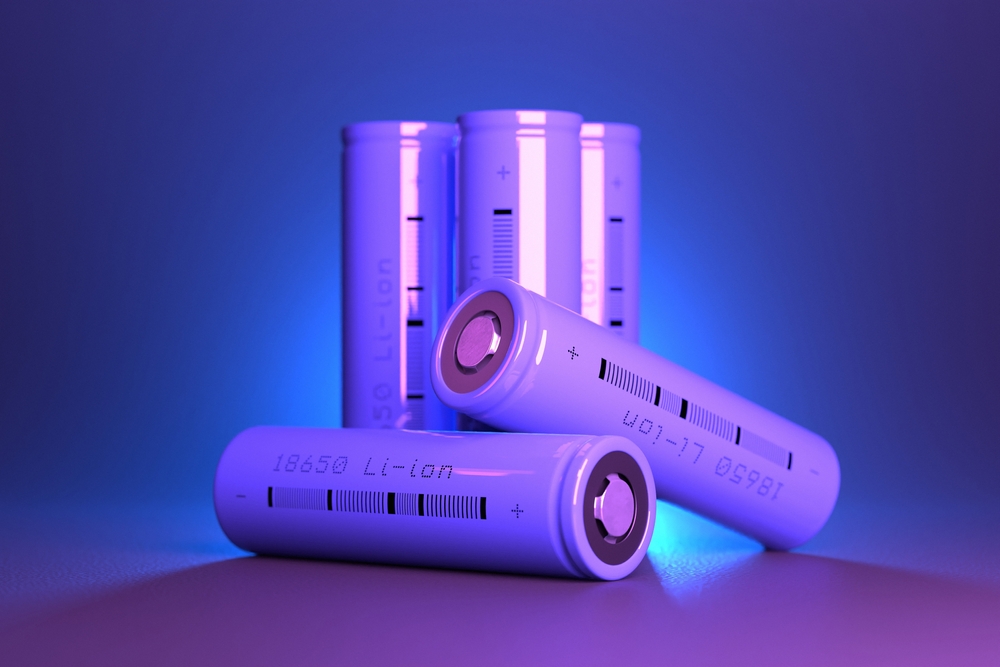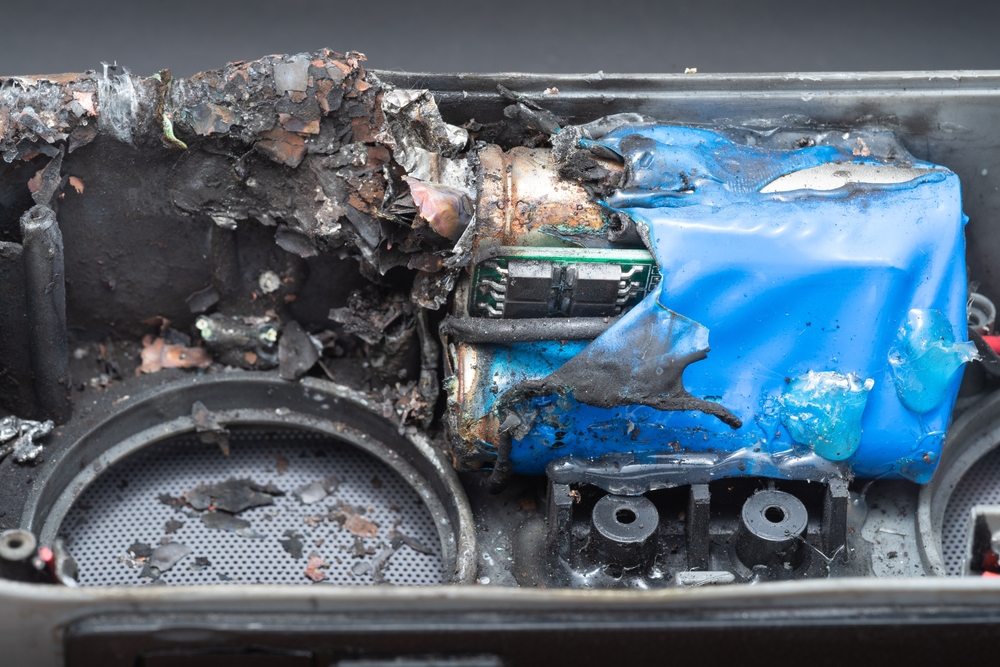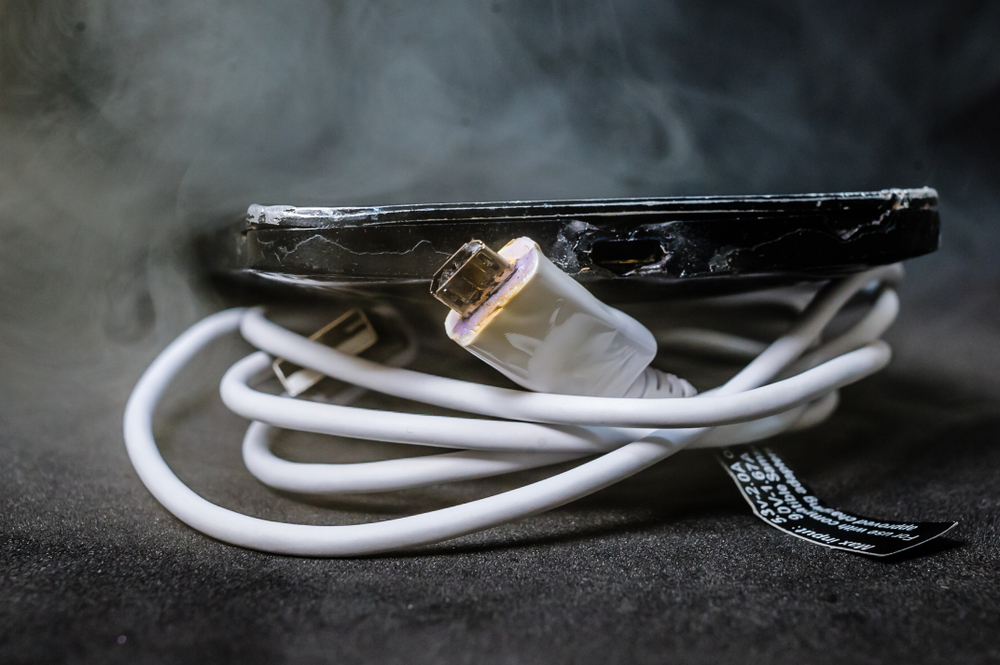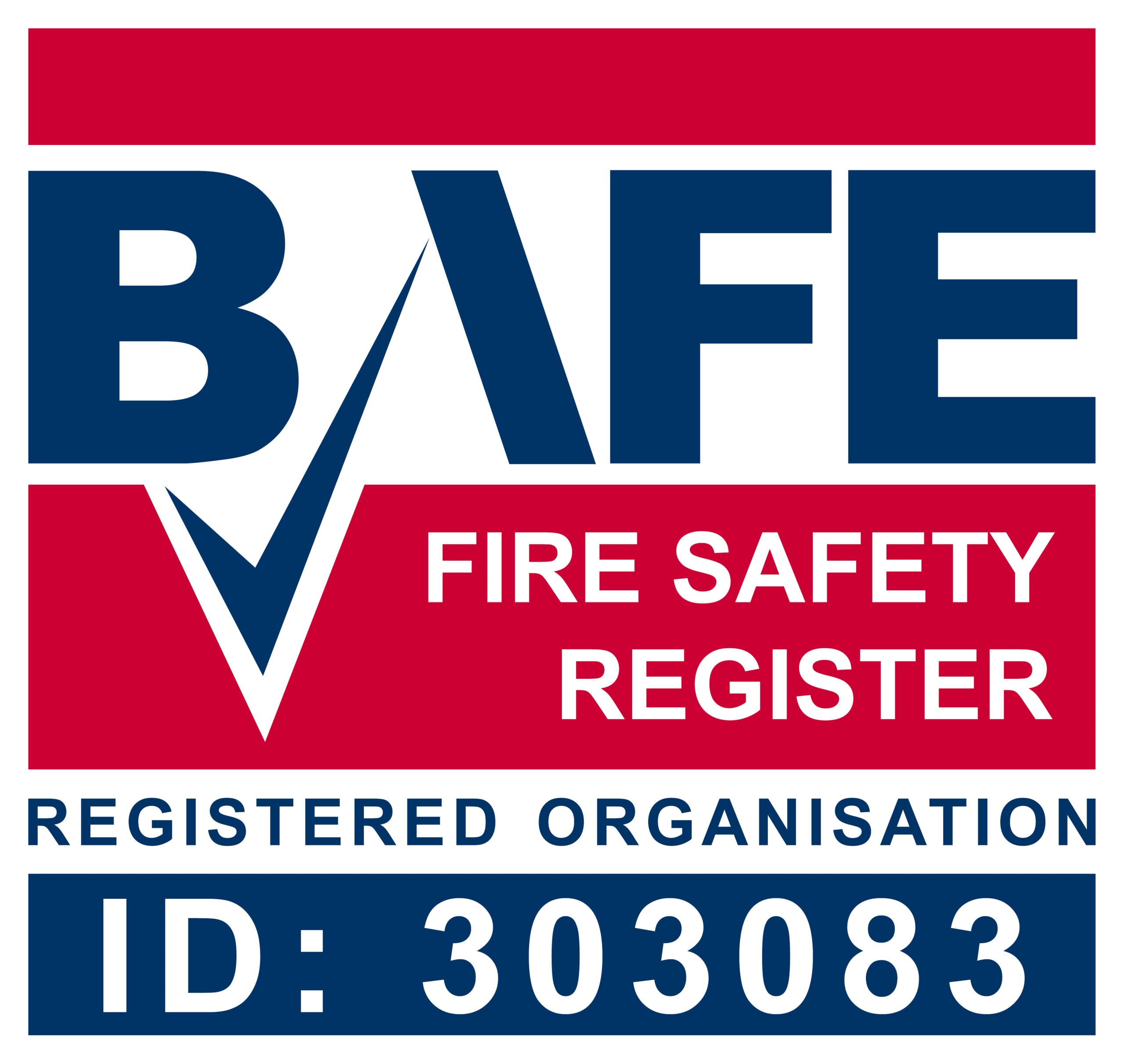Understanding the Risks: A Comprehensive Guide to Lithium-ion Battery Fires
Lithium-ion batteries may seem like a technical term and possibly one you’ve never heard of, but in the modern world, they’re all around us. From phones and tablets to portable chargers and e-cigarettes, lithium-ion batteries are used in many modern products for their long-lasting charge that can be held in a very small device.
But this comes with its own risks that need to be fully understood if you’re going to have lithium-ion batteries around you. The Fire Safety Partnership is dedicated to keeping you safe, so we’ve developed this blog to help you gain important knowledge about lithium-ion batteries, what causes them to catch alight, and what you can do to prevent these battery fires.
What Is a Lithium-ion (Li-ion) Battery

Starting simply, a battery is a device that contains cells of chemical energy which is converted into electricity to be used as a power source. Lithium-ion batteries, also shortened to Li-ion, differ from normal batteries as they primarily use lithium-ions to provide electricity and can be recharged.
It’s this ability to be recharged paired with its immense capabilities to store a huge amount of power that makes it such a useful tool to be used in mobile phones and other electronic devices, so that we may use our devices on the go without needing to regularly replace batteries or keep recharging.
However, the huge energy potential of lithium-ion batteries does have its risks as well as benefits. When travelling through an airport, you may remember that you can only take lithium-ion batteries in hand luggage for safety reasons. So what exactly are the risks and benefits?
Benefits of Lithium-ion Batteries
Lithium-ion batteries have several enormous benefits which is why they are increasingly common in modern technology. Benefits of lithium-ion batteries include:
- Long life
- Easy to recharge
- Sustainable
- Eco-friendly
- Size efficient
Lithium-ion batteries aren’t just practical because they hold a large amount of charge in a relatively small device, although that’s clearly a huge plus. Being rechargeable means that we don’t throw so many old batteries into landfills, polluting the soil and nearby waterways, so lithium-ion batteries are a great thing for our planet’s sustainable future. It also means we each save money buying expensive batteries when we can simply recharge them at home.
Electric vehicles also use lithium-ion batteries, so they can charge quickly at a charging station, and use that energy to travel for miles. We’re seeing more and more electric cars, motorbikes and scooters around, all thanks to the brilliant technology behind lithium-ion batteries.
But there are big risks to take into account and be prepared for.
Lithium-ion Battery Risks

Lithium-ion batteries pose some risks due to the large amount of charge held in the small battery. One of the main risks is known as thermal runaway.
Thermal runaway is the process of the lithium ions creating more heat energy than it can use; the heat created then causes a self-sustaining chemical reaction as the battery overheats, causing the battery to degrade and the lithium to react which can result in fires or explosions. Small batteries like those in phones are unlikely to cause significant damage, although the consequences of a fire or explosion depend largely on where the battery is at the time.
In larger lithium-ion batteries, the consequences can be extremely dire, as the heat-induced fire or explosion can also release toxic, flammable gases.
The risks associated with lithium-ion batteries are severe, however, unlikely, so they must be handled with care, and people should be prepared to prevent or deal with a lithium-ion battery fire, if a situation were to develop.
What Causes Lithium-ion Battery Fires?
Lithium-ion batteries can therefore cause fires due to thermal runaway. But what can cause lithium-ion batteries to overheat?
There are two main causes of lithium-ion battery fires:
- Excess heat
- Mechanical damage
Lithium-ion batteries can overheat and become volatile when they are kept in an environment that is too hot for the battery to function properly. However, many people don’t realise the impact that mechanical damage can have on a lithium battery.
If the lithium-ion battery is compromised in any way i.e. endures physical damage or is not manufactured to the highest standards, the battery can short-circuit, which can cause the lithium to react violently, combusting or starting a fire. To avoid this, the highest fire safety standards need to be in place and measures need to be taken to prevent lithium batteries from being exposed to damage.
How to Prevent Lithium-ion Battery Fires

Whether you work in an environment that handles large lithium-ion batteries or simply work in an office where you’re surrounded by them daily, having the right fire strategies in place to prevent lithium-ion battery fires is essential for your and your colleagues’ safety.
Avoid Physical Damage
The most important factor to prevent lithium-ion battery fires is to prevent physical damage to the battery. Most of us have dropped our phones and they haven’t exploded, but the contents of the battery can be extremely volatile, if sufficient harm is done to the battery, it can provoke a fire. Avoid dropping or hitting lithium-ion batteries and if necessary store them in protective containers while transporting them to ensure they remain intact and prevent any further damage.
If you damage a lithium-ion battery, contact your health and safety lead to prevent any harm to those working around the battery.
Keep Batteries at the Required Temperature
While extreme heat is the main factor that will cause a lithium-ion battery to ignite and cause a fire, they are also sensitive to extreme temperature changes, so you should keep the batteries in the ideal temperature range of 15 to 25 degrees Celsius. This is particularly important while they are charging or in use, as the lithium ions will be heating naturally, and external heat changes can cause the battery to malfunction.
You should also keep lithium-ion batteries out of direct sunlight to prevent any malfunctions leading to fires.
Only Use Trustworthy Batteries
Buying lithium-ion batteries from trustworthy manufacturers is essential for your safety and to prevent any damage as they will be made according to strict regulations and safety standards. Lithium batteries from untrustworthy sources or those that have potentially sustained damage are at a much higher risk of short-circuiting and causing serious damage. Only use lithium-ion batteries you trust.
Use the Right Chargers
Although many different devices use lithium-ion batteries, you need to use the right charger for the right device. You should never attempt to charge your phone with your EV charger or vice versa, for example. Using the wrong charger can lead to overheating, causing a chemical reaction resulting in fire or explosion; avoid this at all costs.
Want to Improve Your Fire Safety Standards?
Prevention is better than cure, and no one wants to deal with a fire in an emergency, so it’s also better to have the highest fire safety standards to prevent any fires in the workplace or at home.
The Fire Safety Partnership has over 30 years of experience and a team of experts ready to help you maintain the highest fire safety standards and prevent any untoward events in the workplace. Whatever your industry, we’ve got plenty of useful information as well as services to help.
Contact us today, or take a look at our previous work.









